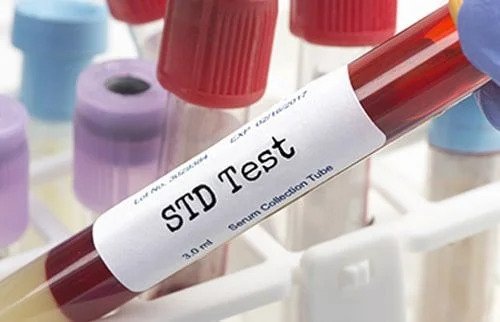Food safety is a critical concern globally, and Malaysia is no exception. As the country experiences growth in both domestic food production and international trade, maintaining high standards in food safety has become essential. One internationally recognized standard that addresses this need is ISO 22000. In Malaysia, adopting ISO 22000 can help food businesses demonstrate their commitment to safety, enhance consumer trust, and improve operational efficiency.
Understanding ISO 22000
ISO 22000 is an internationally recognized standard that specifies the requirements for a food safety management system (FSMS). It is applicable to all organizations involved in the food chain, from primary producers and food manufacturers to distributors, retailers, and even catering services.
Unlike traditional food safety guidelines, ISO 22000 integrates the principles of Hazard Analysis and Critical Control Points (HACCP) and combines them with prerequisite programs (PRPs) to create a comprehensive system. This ensures that all potential food safety hazards, whether biological, chemical, or physical, are identified, controlled, and monitored effectively.
The standard is designed to be flexible, allowing organizations of all sizes and types to implement it according to their unique needs. For Malaysian businesses aiming to expand their presence locally and internationally, ISO 22000 provides a structured approach to managing food safety risks.
Importance of ISO 22000 in Malaysia
Enhancing Consumer Confidence
Food safety is a top priority for consumers in Malaysia. With increasing awareness of foodborne illnesses, consumers are more discerning about the quality and safety of the products they purchase. Implementing ISO 22000 demonstrates a company’s commitment to delivering safe food, which in turn builds trust and strengthens brand reputation.
Meeting Regulatory Requirements
Malaysia has a comprehensive framework of food safety regulations enforced by various authorities. While compliance with local laws is mandatory, ISO 22000 offers an additional layer of assurance that organizations meet international standards. This is especially valuable for businesses involved in exporting food products, as many importing countries require internationally recognized certifications.
Reducing Risks and Costs
Food safety incidents can result in severe financial losses, including product recalls, legal liabilities, and damage to reputation. ISO 22000 helps organizations identify potential hazards before they become critical, implement preventive measures, and maintain consistent monitoring. This proactive approach minimizes risks, reduces waste, and optimizes operational costs.
Facilitating Market Access
For Malaysian companies looking to expand into international markets, ISO 22000 certification can serve as a key differentiator. It signals that the organization adheres to globally recognized food safety standards, making it easier to enter foreign markets and secure contracts with international buyers.
Core Components of ISO 22000
ISO 22000 is built around several core components that ensure a robust food safety management system:
1. Management Commitment
Top management plays a crucial role in establishing and maintaining an effective FSMS. ISO 22000 requires leadership to define a clear food safety policy, allocate necessary resources, and actively participate in reviewing the system’s performance.
2. Hazard Analysis and Critical Control Points (HACCP)
HACCP is at the heart of ISO 22000. Organizations must identify potential food safety hazards, determine critical control points (CCPs), and establish monitoring procedures to control these hazards effectively. This systematic approach ensures that risks are managed proactively.
3. Prerequisite Programs (PRPs)
PRPs include basic hygiene practices, sanitation, pest control, maintenance of equipment, and personnel training. These programs create a foundation for a safe food production environment and complement the HACCP plan.
4. Communication
ISO 22000 emphasizes effective communication across the entire food chain. Organizations must ensure that relevant information about food safety hazards, control measures, and responsibilities is clearly communicated to employees, suppliers, and other stakeholders.
5. Continuous Improvement
Food safety management is not static. ISO 22000 requires organizations to continuously monitor performance, conduct internal audits, and implement corrective actions when deviations occur. This ensures that the FSMS evolves with emerging risks and changing regulatory requirements.
Steps to Implement ISO 22000 in Malaysia
Implementing ISO 22000 involves a structured approach that integrates food safety principles into everyday operations. Here is a step-by-step guide for Malaysian food businesses:
Step 1: Conduct a Gap Analysis
Before starting the certification process, organizations should assess their current food safety practices against ISO 22000 requirements. This gap analysis helps identify areas that need improvement and forms the basis for an action plan.
Step 2: Develop a Food Safety Management System
Based on the gap analysis, organizations should develop an FSMS that includes a food safety policy, hazard analysis, CCPs, PRPs, monitoring procedures, and documentation. The system must be tailored to the organization’s size, processes, and products.
Step 3: Train Employees
Successful implementation of ISO 22000 requires well-trained employees who understand their roles and responsibilities in maintaining food safety. Training programs should cover hygiene practices, hazard identification, monitoring procedures, and corrective actions.
Step 4: Implement the FSMS
Once the system is designed and employees are trained, the FSMS should be implemented across all relevant operations. Regular monitoring, documentation, and internal audits ensure that the system functions effectively.
Step 5: Conduct Internal Audits
Internal audits evaluate the effectiveness of the FSMS, identify non-conformities, and provide recommendations for improvement. Audits help organizations prepare for external certification audits by highlighting areas that require attention.
Step 6: Certification Audit
An accredited certification body conducts the final audit to verify that the organization meets ISO 22000 requirements. Upon successful completion, the organization receives ISO 22000 certification, demonstrating its commitment to food safety.
Step 7: Continuous Improvement
ISO 22000 emphasizes continuous improvement. Organizations should regularly review their FSMS, monitor performance metrics, and update procedures as needed to address emerging risks and changing regulations.
Challenges in Implementing ISO 22000
While ISO 22000 offers numerous benefits, implementing the standard can present challenges, particularly for smaller businesses in Malaysia.
Resource Constraints
Developing and maintaining an FSMS requires investment in training, equipment, and documentation. Smaller companies may find it challenging to allocate sufficient resources.
Employee Engagement
Successful implementation depends on active participation from all employees. Resistance to change or lack of understanding of food safety principles can hinder progress.
Supplier Compliance
Food safety is a chain-wide responsibility. Organizations must ensure that suppliers and partners adhere to the same standards, which can be challenging when dealing with multiple vendors.
Regulatory Alignment
While ISO 22000 aligns with international standards, organizations must also comply with Malaysian food safety regulations. Coordinating these requirements may require careful planning and expert guidance.
Benefits of ISO 22000 Certification in Malaysia
Improved Food Safety
Certification ensures that organizations implement a systematic approach to identifying and controlling food safety hazards, reducing the risk of contamination and foodborne illnesses.
Enhanced Reputation
ISO 22000 certification signals to customers, regulators, and business partners that the organization prioritizes food safety, boosting credibility and trust.
Market Competitiveness
Certified companies gain a competitive advantage in both domestic and international markets, opening opportunities for growth and export expansion.
Operational Efficiency
The structured processes of ISO 22000 help streamline operations, reduce waste, and enhance productivity, leading to long-term cost savings.
Regulatory Compliance
Certification supports compliance with local food safety laws and international regulations, reducing the risk of legal penalties and product recalls.
Conclusion
ISO 22000 has become an essential standard for food safety management in Malaysia. By integrating hazard analysis, prerequisite programs, and continuous improvement, organizations can ensure the safety of their products and protect public health. While implementation requires commitment, resources, and employee engagement, the benefits—enhanced consumer confidence, operational efficiency, regulatory compliance, and global market access—make it a worthwhile investment.
For Malaysian food businesses aiming to thrive in a competitive market, ISO 22000 is more than just a certification; it is a commitment to excellence, safety, and trust across the food supply chain.


